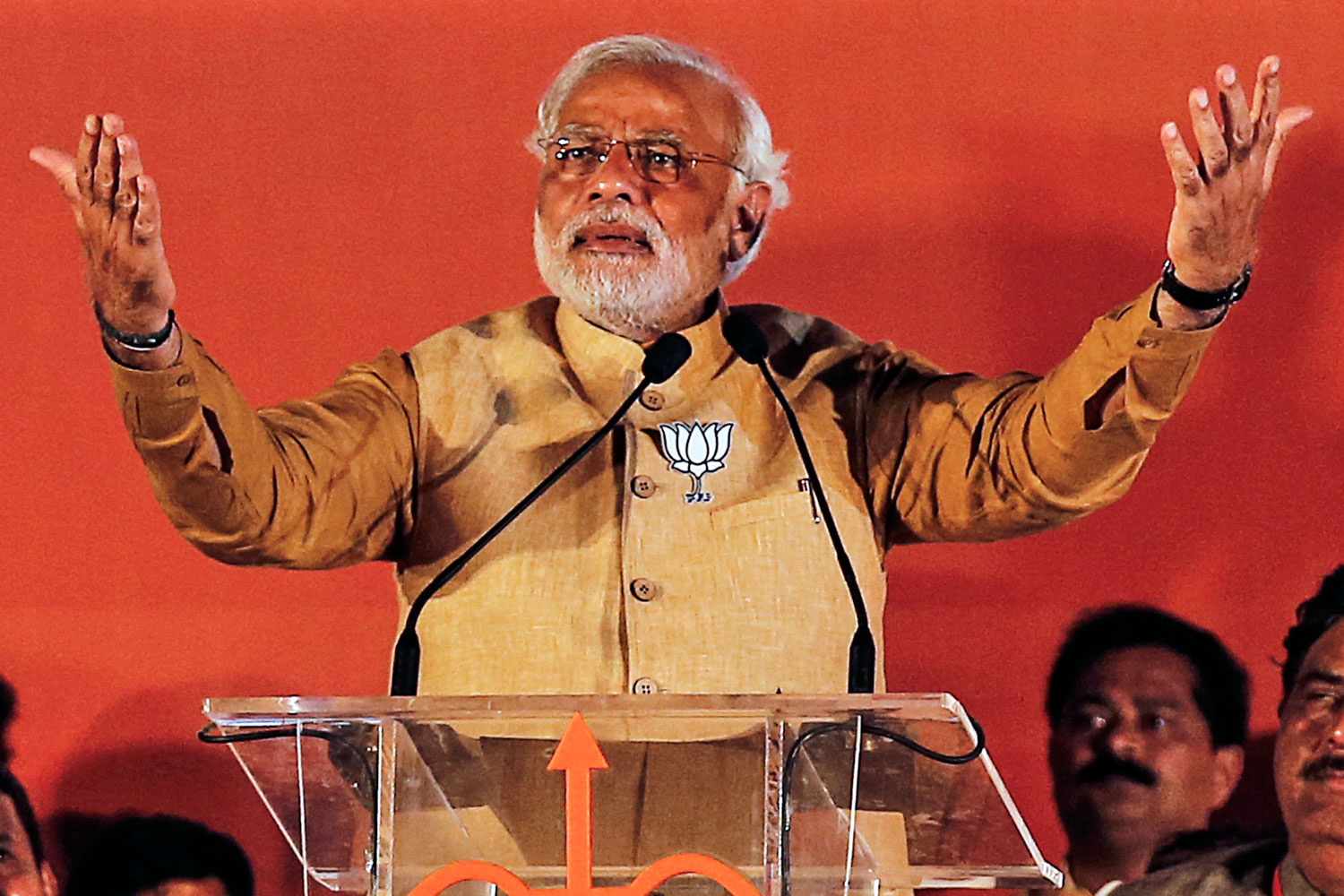
Asia boasts half the planet’s landmass and two-thirds of its population, a peerless mishmash of boundless energy and manifold cultures. For better or worse, here is our pick of the most influential figures from across the world’s largest continent.
As the world’s most populous nation, China was always likely to feature strongly in TIME 100, and this year’s list features a true pair of tech titans.
Pony Ma founded Tencent Inc., one of China’s largest Internet companies, and is lauded by Arianna Huffington for tapping “into something timeless and universal: a longing for connection.”
Jack Ma (no relation) displays a similar flair for radical thinking. The former English teacher helped launched Alibaba, the world’s largest Internet marketplace, from an apartment in the eastern Chinese city of Hangzhou. The company is now worth anywhere from $80 to $150 billion. His is the new China Dream.
In the middle of the Indian general elections — which, with over 840 million voters, is the largest democratic exercise on the planet — the world’s gaze falls on the country’s politicians as never before, and Arvind Kejriwal stands out more than most. A former civil servant, “his role as the driving force behind a grassroots anticorruption movement in 2011 … catapulted him onto the national stage,” writes Indian journalist and news presenter Rajdeep Sardesai. Kejriwal is also the winner of the Time 100 Readers’ Poll.
Up against Kejriwal in the polls is prime ministerial frontrunner Narendra Modi, the chief minister of Gujarat state. Despite his popularity, he remains a deeply divisive figure, with a “reputation for autocratic rule and a dark Hindu-nationalist streak,” writes CNN’s Fareed Zakaria.
But India has more to boast than ballot chasing, and Arundhati Roy, the acclaimed author of The God of Small Things, is included for her “nonfictional engagement with the conflicts and traumas of a heedlessly globalized world,” says award-winning novelist Pankaj Mishra. She is joined by Arunachalam Muruganantham, an inventor from rural Tamil Nadu, who pioneered an inexpensive solution to menstrual problems that were afflicting thousands of women.
Malala Yousafzai once again makes the list for her fearless championing women’s right to education in her native Pakistan and beyond, and this year is joined by Erwiana Sulistyaningsih, the 23-year-old Indonesian maid so badly beaten by her employer in Hong Kong that her plight shook the world and made her into an icon of the struggle of migrant workers everywhere for better conditions. “Erwiana could not be broken, nor could she be silenced,” writes human trafficking activist Somaly Mam.
From the often powerless to the always powerful: Japanese Prime Minister Shinzo Abe and Chinese President Xi Xinping take their rightful places in this year’s list, along with basketball-loving despot Kim Jong Un. His “disregard for a desperately poor citizenry raises the eternal North Korean question: How much suffering can human beings tolerate?” asks Pulitzer Prize–winning author Adam Johnson.
And then there is the soft power. Yao Chen is an award-winning Chinese actress, but her true clout is drawn from the 66 million followers she boasts on Chinese Twitter-like microblog service Weibo, where she opines on everything from the environment to social justice — issues that strike at the very heart of all that is Asia.
More Must-Reads from TIME
- Donald Trump Is TIME's 2024 Person of the Year
- Why We Chose Trump as Person of the Year
- Is Intermittent Fasting Good or Bad for You?
- The 100 Must-Read Books of 2024
- The 20 Best Christmas TV Episodes
- Column: If Optimism Feels Ridiculous Now, Try Hope
- The Future of Climate Action Is Trade Policy
- Merle Bombardieri Is Helping People Make the Baby Decision
Write to Charlie Campbell at charlie.campbell@time.com